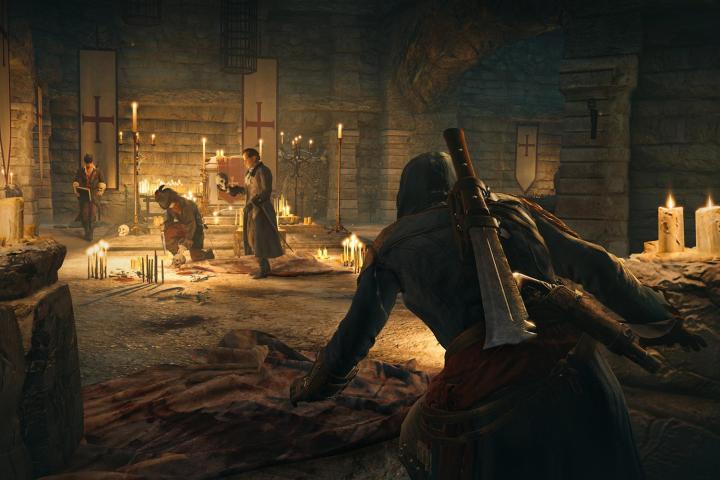
The gist is that by accepting the free game, you agree to never seek further compensation from Ubisoft or any of its affiliates for problems related to Unity or any of its future content. This applies to both personal and class-action lawsuits. The full, dense legalese reads as follow:
“You hereby irrevocably and unconditionally RELEASE, WAIVE, AND FOREVER DISCHARGE AND COVENANT NOT TO SUE Ubisoft Entertainment S.A., and each of its past, present and future divisions, parent companies, subsidiaries, affiliates, predecessors, successors and assigns, together with all of their respective past, present and future employees, officers, shareholders, directors and agents, and those who give recommendations, directions, or instructions or engage in risk evaluation or loss control activities regarding the Campaign (all for the purposes herein referred to as “Released Parties”) FROM ANY AND ALL LIABILITY TO YOU, your assigns, heirs, and next of kin FOR ANY AND ALL CLAIMS, DEMANDS, CHARGES, LAWSUITS, DEBTS, DEFENSES, ACTIONS OR CAUSES OF ACTION, OBLIGATIONS, DAMAGES, LOSS OF SERVICE, COMPENSATION, PAIN AND SUFFERING, ATTORNEYS’ FEES, AND COST AND EXPENSES OF SUIT, KNOWN OR UNKNOWN, SUSPECTED OR UNSUSPECTED, ARISING OUT OF OR RELATED TO THE PURCHASE, ACQUISITION, RENTAL, POSSESSION AND/OR USAGE, AND/OR THE INTENT TO PURCHASE, ACQUIRE, RENT, POSSESS AND/OR USE, THE ASSASSIN’S CREED UNITY VIDEO GAME AND/OR THE ASSASSIN’S CREED UNITY SEASON PASS ON ANY AND ALL PLATFORMS, AND/OR RELATED TO THE CAMPAIGN, WHETHER CAUSED BY THE NEGLIGENCE OF THE RELEASED PARTIES OR OTHERWISE.”
In November, Ubisoft announced that everyone would be given Unity‘s first add-on content, Dead Kings for free, as an apology for the notoriously buggy launch. Fans that had already purchased the season pass, which includes Dead Kings, would instead be able to redeem a free game from the company’s catalog, such as Far Cry 4 or The Crew.
That generous offer is now ready, but there ain’t no such thing as a free lunch, as the saying goes. Know what you’re getting into and read before you sign, which is good advice generally for dealing with all the ballooning EULAs that consumers regularly encounter these days.
Editors' Recommendations
- VR gaming lost me in 2023, and then totally won me back
- Assassin’s Creed Nexus VR turned me into a sociopath (and I love it)
- Assassin’s Creed Mirage ending explained: What happens to Basim, Nehal, and Roshan
- All Assassin’s Creed Mirage outfit locations
- The best skills to get in Assassin’s Creed Mirage


